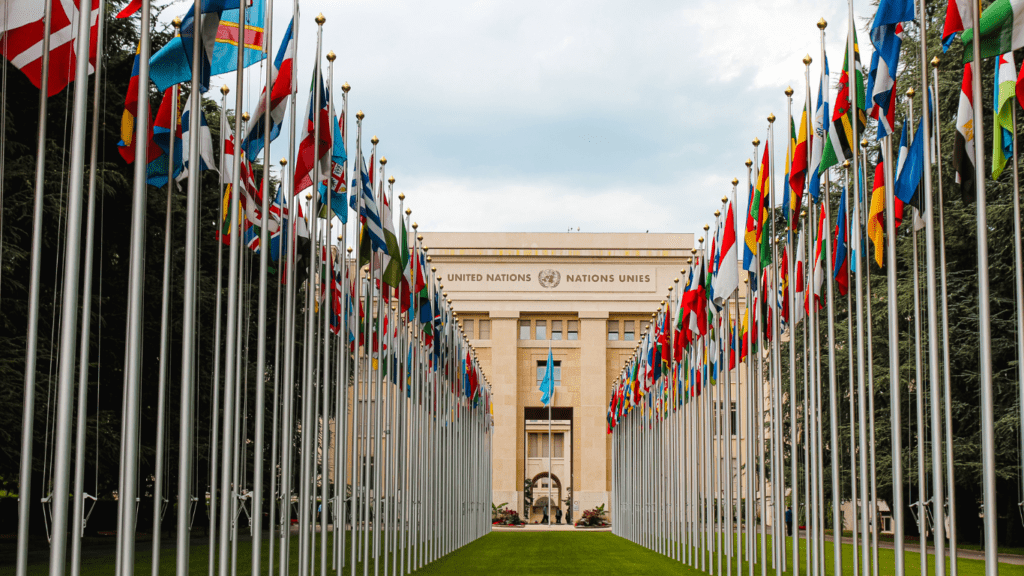Understanding Political Flashpoints
Political flashpoints are pivotal issues causing shifts in public discourse and influencing policy. These issues often arise from societal challenges that demand immediate attention. Climate change stands out due to its wide-reaching and lasting effects on the environment and economies. Scientists underscore the urgent need to address rising temperatures, and this elevates climate change’s status as a significant political concern.
Digital privacy is another critical flashpoint. With the exponential growth in data collection and surveillance, privacy rights often clash with national security efforts. Legislators and tech companies engage in complex debates to determine where to draw the boundaries.
Migration trends also generate intense discussions. Socioeconomic disparities and conflicts drive migration, affecting both origin and destination countries. Governments face the intricate task of balancing humanitarian concerns with national interests.
Healthcare access remains a prominent political issue, highlighting the disparities in systems worldwide. Policymakers strive to address:
- costs
- quality
- accessibility
for diverse populations. These flashpoints, interwoven with economic, social, and ethical dimensions, shape local and international policy agendas. Understanding their roots and implications helps navigates the political landscape effectively. By addressing these topics, we can better engage with the complexities defining our era.
Key Topics in Political Discourse
Today’s political landscape features critical discussions influencing public agendas and policy formation.
Economic Inequality
Economic inequality continues shaping political debates globally. Wealth gaps contribute to social unrest and drive demands for fair income distribution. OECD data shows that the wealthiest 10% own nearly half of global assets, highlighting disparities. Political movements focus on redistributing wealth to achieve economic justice and reduce poverty. Tax reforms and social programs are among proposed solutions to bridge these gaps.
Climate Change Policies
Climate change policies dominate political agendas due to escalating environmental challenges. Nations craft policies to reduce carbon emissions and promote sustainability. The Paris Agreement exemplifies international commitment, aiming to limit global warming to well below 2 degrees Celsius. Renewable energy initiatives and carbon pricing are key strategies supported by governments to combat climate change. These policies face challenges like economic backlash and political resistance.
Immigration and Borders
Immigration policies and border control are essential topics driving political discourse. The movement of people due to conflicts and economic disparities necessitates comprehensive policy responses. United Nations data indicate that over 280 million people were migrants in 2020, underscoring the scale of this issue. Debates focus on balancing security with human rights and integrating migrants into host societies. Reformative policies seek to manage borders while ensuring fairness and safety for migrants and refugees.
Impact of Social Media on Political Flashpoints

Social media plays a pivotal role in shaping political flashpoints, acting as a rapid dissemination channel for information and opinion, affecting public discourse and policy decisions globally.
Spread of Information
Social media enables the quick distribution of information across the world. Platforms like Twitter and Facebook allow updates from political figures, news outlets, and individuals to reach millions in seconds. This accessibility promotes awareness and engagement on issues like climate change and economic inequality, connecting global audiences to localized events and decisions instantly.
Misinformation Challenges
While social media spreads information effectively, it also facilitates the spread of misinformation. False narratives and manipulated content can polarize public opinion and distort political flashpoints. During events like elections or policy debates, misinformation campaigns may influence perceptions and decision-making. Efforts to fact-check and moderate content are crucial to uphold the integrity of public discourse on these platforms.
Regional and Global Perspectives
Political flashpoints create both regional and global impacts, highlighting unique challenges and shared concerns across continents.
North America
In North America, immigration and economic inequality dominate political discussions. The US faces debates regarding border security, with policies often clashing over human rights and safety. Economic inequality remains a centerpiece, as movements call for wealth redistribution through tax reforms and increased minimum wages. In Canada, climate action is increasingly prioritized, with policies targeting carbon reduction despite regional opposition from fossil-fuel-dependent areas.
Europe
Europe grapples with migration and rising nationalism. The influx of refugees, driven by conflicts in the Middle East and Africa, pressures nations to balance humanitarian response and border control. The European Union (EU) faces internal debates on economic policies, with Southern and Eastern European countries often pushing for more inclusive growth strategies. The rise of right-wing populism presents challenges to EU cohesion, influencing policies on sovereignty and integration.
Asia-Pacific
In the Asia-Pacific, regional security and economic growth are focal points. The South China Sea territorial disputes involve China and several Southeast Asian countries, adding to regional tension. Trade policies are pivotal, with economic agreements shaping alliances. Environmental challenges are increasingly at the forefront, as countries address climate impacts and resource scarcity, evidenced by initiatives like the Comprehensive and Progressive Agreement for Trans-Pacific Partnership (CPTPP).
Strategies for Managing Political Tensions
Managing political tensions requires strategic approaches to foster dialogue, mitigate conflicts, and promote stability. I explore several effective strategies used in navigating these complexities.
- Open Dialogue and Communication
Learn to create platforms for open communication where stakeholders can express concerns and aspirations. Community forums, town hall meetings, and online discussion groups are effective in bridging gaps and promoting mutual understanding. - Policy Reforms and Legal Frameworks
Examine and update existing policies to reflect contemporary realities. Overhauling outdated legal systems and implementing inclusive policies not only addresses current grievances but also prevents future tensions. - Mediation and Diplomacy
Employ skilled mediators and diplomats to facilitate negotiations between conflicting parties. Their role includes finding common ground and developing agreements that balance differing interests. - Education and Awareness Campaigns
Implement educational initiatives to raise awareness about key political issues. Programs in schools, workshops, and public campaigns help demystify complex topics, encouraging informed and engaged citizenry. - Economic Empowerment and Social Inclusion
Promote economic opportunities and reduce inequality to address underlying tensions. Supporting job creation, enhancing access to resources, and ensuring representation for marginalized groups foster a more equitable society. - Fact-Checking and Media Literacy
Address misinformation by promoting media literacy and fact-checking initiatives. Encouraging critical evaluation of news sources helps individuals discern factual information from false narratives, reducing polarizing effects.
By adopting these strategies, it’s possible to manage tensions effectively and contribute to a more peaceful political atmosphere. Implementing these approaches ensures stakeholders can collaboratively navigate the complexities defining our political era.



 ____________
____________
